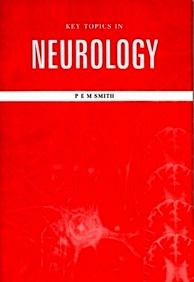Reseña o resumen
An excellent introduction for all those coming to the subject for the first time
New material has been added to the second edition and the original six chapters have been modified.
Based on numerous courses given by the author to students and researchers in the health sciences and is written with such readers in mind
Provides a user-friendly layout that includes numerous illustrations and exercises
Written in such a way to enable readers to learn directly without the assistance of a classroom instructor
Each new topic is backed by real examples of a survival analysis investigation and followed up with thorough analyses of real data sets
This greatly expanded third edition of Survival Analysis- A Self-learning Text provides a highly readable description of state-of-the-art methods of analysis of survival/event-history data. This text is suitable for researchers and statisticians working in the medical and other life sciences as well as statisticians in academia who teach introductory and second-level courses on survival analysis.
The third edition continues to use the unique "lecture-book" format of the first two editions with one new chapter, additional sections and clarifications to several chapters, and a revised computer appendix. The Computer Appendix, with step-by-step instructions for using the computer packages STATA, SAS, and SPSS, is expanded to include the software package R.
David Kleinbaum is Professor of Epidemiology at the Rollins School of Public Health at Emory University, Atlanta, Georgia. Dr. Kleinbaum is internationally known for innovative textbooks and teaching on epidemiological methods, multiple linear regression, logistic regression, and survival analysis. He has provided extensive worldwide short-course training in over 150 short courses on statistical and epidemiological methods. He is also the author of ActivEpi (2002), an interactive computer-based instructional text on fundamentals of epidemiology, which has been used in a variety of educational environments including distance learning.
Mitchel Klein is Research Assistant Professor with a joint appointment in the Department of Environmental and Occupational Health (EOH) and the Department of Epidemiology, also at the Rollins School of Public Health at Emory University. Dr. Klein is also co-author with Dr. Kleinbaum of the second edition of Logistic Regression- A Self-Learning Text (2002). He has regularly taught epidemiologic methods courses at Emory to graduate students in public health and in clinical medicine. He is responsible for the epidemiologic methods training of physicians enrolled in Emory's Master of Science in Clinical Research Program, and has collaborated with Dr. Kleinbaum both nationally and internationally in teaching several short courses on various topics in epidemiologic methods
Table of contents Introduction to Survival Analysis.- Kaplan-Meier Survival Curves and the Log-Rank Test.- The Cox Proportional Hazards Model and Its Characteristics.- Evaluating the Proportional Hazards Assumption.- The Stratified Cox Procedure.- Extension of the Cox Proportional Hazards Model for Time-Dependent Variables.- Parametric Survival Models.- Recurrent Events Survival Analysis.- Competing Risks Survival Analysis

